What Is Digital Advertising: A Practical Guide for Business Owners
- Chase McGowan

- Oct 17, 2025
- 14 min read
Ever feel like you’re shouting into the wind with your marketing? Digital advertising is the complete opposite. It’s a smart, strategic way to get your message in front of the right people, on the right platform, at the exact moment they’re ready to listen.
Answering What Is Digital Advertising
Think about a classic billboard on the side of the highway. It shows the same ad to every single person who drives past, whether they're a potential customer or not. It's a one-size-fits-all approach.
Now, imagine that billboard could see your ideal customer in an approaching car, instantly change its message just for them, and then tell you exactly how many of those people later visited your store. That’s the magic of digital advertising.
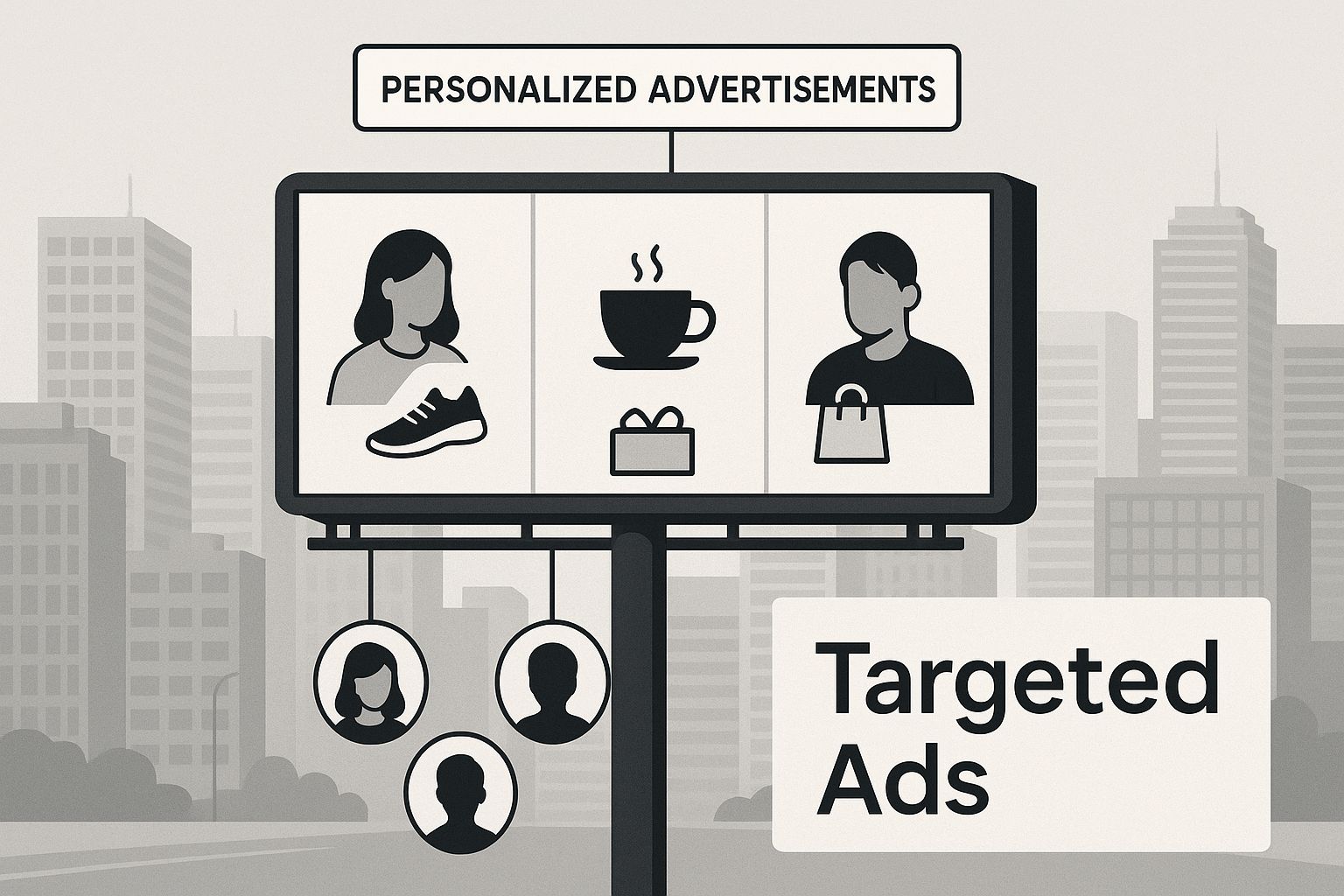
This shift from broadcasting to targeted communication is what makes it so powerful. Modern ads are personal and backed by data, which means a better experience for your customers and a much better return on your investment.
It's no surprise that digital has taken over. In 2024, it’s expected to make up about 72.7% of all advertising investment worldwide. That translates to an eye-watering online ad spend of over US$790 billion in a single year.
The Four Pillars of Digital Advertising
You don’t need to get bogged down in technical jargon to get started. Instead, just focus on the four core pillars that hold up every successful campaign. Once you get these, you’ll understand why a thoughtful, expert strategy will always outperform a generic one from a bloated agency.
If you’re just dipping your toes in, a good overview of digital marketing for beginners can also help set the stage.
Here’s a quick breakdown of what you need to have locked down before you spend a single dollar.
The Four Pillars of Digital Advertising
Pillar | What It Means for Your Business |
|---|---|
Audience | This is your "who." It’s not just about age or location; it’s about understanding their online habits, what they’re interested in, and what problems they need solved. |
Channel | This is your "where." Find out where your audience hangs out online. Are they on Google, scrolling through Instagram, or reading niche blogs? That's where you need to be. |
Message | This is your "what." Your ad needs to be compelling and speak directly to your audience. What works on Facebook won't necessarily work on LinkedIn—the message has to fit the channel. |
Goal | This is your "why." Every single ad needs a purpose. Do you want them to buy a product, sign up for a newsletter, or call your office? Define what success looks like from the start. |
Nailing these four components is what separates the campaigns that make money from the ones that just cost money. It's all about precision.
Exploring Your Digital Advertising Options
So, you've got the basic idea of digital advertising down. The next obvious question is, where do you actually run these ads?
Choosing the right channel is like picking the right tool for a job. You wouldn't use a hammer to saw wood, and you definitely shouldn't run Instagram ads when your ideal customer is frantically Googling for an emergency plumber.
An experienced consultant knows this distinction is everything. A bloated agency, on the other hand, might just push whatever channel they’re most comfortable with or where they make the highest margins. My goal is to meet your customers exactly where they are, not where it’s most convenient for your marketing partner.

Let's break down the main options with some simple analogies.
Meet Customers with High Intent on Search
Think of Search Advertising, often called Pay-Per-Click (PPC), as being the answer to someone’s urgent question. If a pipe bursts in their home, they aren’t scrolling social media hoping to stumble upon a plumber. They’re grabbing their phone and typing "emergency plumber near me" into Google.
This is intent-based marketing at its purest. You’re not interrupting their day; you’re providing the exact solution they’re actively searching for, right when they need it most.
For any business that solves a specific, immediate problem—from legal services to HVAC repair—mastering Google Ads is non-negotiable for capturing high-quality leads. As a Google Ads specialist, this is my core area of expertise. While paid and organic search are both vital, paid ads give you instant visibility for your most critical keywords. For a deeper dive into how they differ, check out this expert consultant's guide on paid search vs organic search.
Join the Conversation with Social Media Ads
If search ads are about answering a question, Social Media Advertising is about joining a conversation. Platforms like Facebook, Instagram, and LinkedIn are where people hang out, share interests, and discover new things through friends and compelling content.
Here, you target users based on their demographics, interests, and behaviors. It’s a perfect fit for businesses with visually appealing products (like fashion or home décor) or for anyone looking to build a community around their brand. The goal is to become a welcome part of their feed, not an annoying interruption.
Key Takeaway: Search captures existing demand by answering a user's direct need. Social creates new demand by introducing your brand into their digital social life. A specialist helps you decide where your budget will have the most immediate impact.
Build Brand Awareness with Display and Video
Finally, we have Display and Video Advertising.
Display Ads are the visual banners you see sprinkled across websites, blogs, and apps. Think of them as the modern version of a magazine ad, perfect for keeping your brand top-of-mind.
Video Ads, which you’ll most famously see on platforms like YouTube, grab attention in a way that static images just can't. They’re fantastic for telling a story or showing a product in action.
Both of these channels are powerhouses for building brand awareness and retargeting people who have already visited your website.
Ultimately, choosing the right channel isn't a one-size-fits-all decision. It's a strategic choice an expert consultant makes based on your specific business goals, ensuring every single dollar is invested for maximum return.
The Expert Consultant vs. The Bloated Agency
Alright, you now see the incredible power you can tap into with digital advertising. This brings you to what might be the single most important decision for your business's growth: who's going to manage this investment?
Think about it like this—would you ask your family doctor to perform open-heart surgery? Of course not. You’d find a specialist, a surgeon who has dedicated their entire career to that one complex procedure.
The exact same logic applies here. This is where the road forks, and you have to choose between the old-school, bloated agency model and partnering with a dedicated, individual expert like myself.

The Hidden Costs of the Bloated Agency Model
Large digital ad agencies can look impressive on the surface. They’ve got the fancy downtown office, a huge team, and a long list of clients. But that model is often built with some serious hidden costs—costs that get passed right down to you.
First up is the high overhead. That swanky office space and massive support staff? You're footing the bill through your monthly retainer. It's a business model that relies on signing as many clients as possible to cover its enormous costs, not on making each one a massive success.
Next, you have to ask who is actually managing your ad spend. Too often, the senior expert who wowed you in the sales pitch hands your account off to a junior-level manager. This person is likely fresh out of school, juggling a dozen other clients, and essentially learning the ropes with your money.
And finally, the strategy itself is often generic. Big agencies create "playbooks" and apply the same templated approach to all their clients, no matter how different their goals are. Your business becomes just another cog in their machine, getting a one-size-fits-all strategy that rarely produces the best results.
The Specialized Consultant Advantage
Going with an individual expert consultant flips that entire model on its head. Instead of paying for an agency's bloated overhead, your investment goes directly into a specialist's time and brainpower. The whole dynamic shifts from a client-vendor transaction to a genuine partnership.
Here’s what that advantage looks like in the real world when you work with me:
Direct Access to an Expert: Got a question? You talk directly to the person running your campaigns—me. No go-betweens, no account managers. This means crystal-clear communication and the ability to make smart, fast decisions.
Deep Specialization: As a Google Ads consultant, I focus on mastering one platform. This means I'm a true master of my craft, living and breathing every platform update and strategic shift to get you the best possible return.
Cost-Efficiency: Without all the agency bloat, my pricing model is much leaner and more efficient. Your money is spent on strategic work that actually drives growth, not on funding a corporate hierarchy.
A Truly Custom Strategy: I build your strategy from the ground up, based entirely on your business goals. My success is measured by your growth, not by whether an agency hits its internal revenue targets.
As a dedicated consultant, I am personally invested in your success because my entire reputation is built on it. I become an extension of your team, giving you the focused attention and specialized skill you need to win in the crowded world of digital advertising.
Choosing the right partner has never been more critical. The global digital ad spending market hit around USD 600 billion in 2024 and is expected to nearly double by 2034, all thanks to platforms like search engines and social media. You can learn more about the growth of the digital ad market on Precedence Research.
All that growth means more competition. To stand out, you don't just need a bigger budget—you need smarter, more specialized expertise on your side.
How To Measure Real Advertising Success
Agencies often love to parade reports filled with big, flashy numbers. They’ll point to thousands of impressions—how many eyeballs saw your ad—and a ton of clicks. But let's be honest, those figures look great on a slide deck, but they don't pay your bills. It’s a classic move to create the illusion of success while your money drains away.
As a dedicated consultant, my focus is different. I immediately separate the “vanity metrics” from the numbers that actually drive your business forward. The goal isn’t just to get seen; it’s to make a profit. Getting this distinction right is the first step toward making your advertising accountable for real, tangible growth.
Focusing on Metrics That Matter
To truly know if your digital ads are pulling their weight, you have to look past the surface-level fluff. It's about mastering your digital advertising performance metrics and focusing on the Key Performance Indicators (KPIs) that connect directly to your bank account.
These are the core metrics I live and breathe for my clients:
Cost Per Acquisition (CPA): This is the bottom-line cost to get one new paying customer. You simply divide your total ad spend by the number of new customers you won. A low CPA is a sign of a highly efficient campaign.
Return On Ad Spend (ROAS): This is the holy grail. For every single dollar you put into ads, how many dollars in revenue are you getting back? A ROAS of 5:1 means you're generating $5 for every $1 you spend.
Customer Lifetime Value (CLV): This one is about the long game. It calculates the total revenue you can expect from a single customer over their entire relationship with your business. Knowing your CLV helps you decide exactly how much you can afford to spend to get them in the door.
An agency might pop the champagne over a campaign that got 10,000 clicks. As your consultant, I ask, "Great, but how many of those clicks turned into profitable customers with a high lifetime value?" It’s a totally different conversation—one focused on your financial health, not their reporting stats.
It’s easy to get sidetracked by numbers that feel good but mean very little for your actual business. Agencies sometimes use these vanity metrics to make performance seem better than it is, while an expert focuses on what drives revenue.
Here’s a simple way to tell the difference:
Vanity Metrics vs. Business Metrics
Metric Type | Example | Why It Matters (or Doesn't) |
|---|---|---|
Vanity Metric | Impressions | Shows your ad was displayed, but not if anyone cared or took action. It's just noise without context. |
Business Metric | Cost Per Acquisition (CPA) | Tells you the exact cost to acquire a paying customer. Directly measures profitability. |
Vanity Metric | Click-Through Rate (CTR) | Measures how many people clicked, but a high CTR with zero sales is a waste of money. |
Business Metric | Return on Ad Spend (ROAS) | The ultimate proof of performance. Shows if your ad spend is an investment or an expense. |
Vanity Metric | Website Visitors | More traffic is nice, but if they aren't the right people who convert, it's meaningless. |
Business Metric | Customer Lifetime Value (CLV) | Guides your entire marketing budget by showing what a customer is truly worth over time. |
Focusing on business metrics ensures every dollar you spend is working toward a clear, measurable goal: growing your bottom line.
From Confusing Reports to Clear ROI
Let’s make this real. Imagine you run a local plumbing business. An agency sends you a report crowing about 50,000 impressions last month. Sounds amazing, right?
But a specialist digs in and finds out you spent $2,000 to book just five new jobs. Your CPA was a staggering $400 per job. Ouch.
The specialist takes over and completely restructures the campaign. The next month, you get fewer impressions, but you book 20 new jobs on a $1,500 budget. Your CPA is now a highly profitable $75. That’s the difference between empty activity and real results. For a deeper dive, check out our guide on how to measure advertising effectiveness.
This is exactly why choosing the right partner is so critical. A true specialist is obsessed with proving your ROI, giving you clear, actionable data that shows precisely how your ad dollars are growing your business. I cut through the noise to deliver the only thing you actually need—measurable success.
Your First Steps Into Digital Advertising
Jumping into the world of digital advertising can feel like you're about to walk into a casino. It’s intimidating, and it feels like the house always wins. But it doesn't have to be a costly guessing game.
With a smart, disciplined approach, you can start getting results without just lighting your budget on fire. Forget the overly complicated strategies pitched by big, faceless agencies. Real success starts with nailing the fundamentals.
This isn’t about just spending money—it's about making a calculated investment. The digital ad space is massive. In the United States alone, total ad spend is projected to hit $317 billion in 2025. Globally, in-app advertising is expected to reach an eye-watering $352 billion.
With that much money flying around, a random, "let's see what sticks" approach is the fastest way to get lost in the noise. You can find more insights about these US advertising market trends on byyd.me.
A focused specialist helps you cut through that noise. I provide a practical roadmap built for one thing: getting a return on your investment.
Laying The Essential Groundwork
Before you spend a single dollar on an ad, you need a solid foundation. This is non-negotiable.
Large agencies often rush this part, slapping a generic template on your business that completely ignores what makes you unique. As a dedicated consultant, I know that a little bit of strategic planning upfront prevents a whole lot of expensive mistakes down the line.
Here’s my simple, five-step framework to get you started on the right foot:
Define One Clear Business Objective: What is the single most important action you want someone to take? Is it booking a consultation? Buying a product? Filling out a form? Pick one—just one—and build your entire campaign around that goal.
Pinpoint Your Ideal Customer Profile: Go deeper than basic demographics. What are their real-world problems? What words are they actually typing into Google when they look for a solution? An expert helps you build a detailed profile so your ads speak directly to the right person, not just any person.
Set a Realistic Starting Budget: Your budget shouldn't be a number you just pulled out of thin air. A specialist will help you work backward from your main business goal to figure out a smart test budget. The whole point is to prove the model works before you start pouring more money into it.
Choose the Highest-Impact Channel First: Don’t try to be everywhere at once. It’s a recipe for failure. Based on your goals and customer profile, an expert will help you pick the single best channel—like Google Ads for people actively searching for what you sell—to get the fastest wins.
Craft an Irresistible Offer: Your ad needs to give people a powerful reason to click. A great offer solves a specific problem and delivers obvious value, making the decision to check you out a total no-brainer.
Partnering with a specialist like me streamlines this entire process. You get a strategy tailored to your business, helping you skip the expensive trial-and-error phase that sinks so many DIY campaigns and bloated agency experiments.
Getting your campaign structure right is just as critical as your strategy. A clean, logical setup makes it infinitely easier to optimize your ads and squeeze more performance out of your budget. To see what that looks like in practice, check out our in-depth guide to Google Ads account structure. This is the kind of foundational knowledge that pays off for years to come.
Your Top Digital Advertising Questions, Answered
Jumping into digital advertising always kicks up a bunch of questions. I get it. Getting straight answers is the only way to move forward with confidence and sidestep those costly rookie mistakes.
Let’s cut through the noise. Here are direct answers to the questions I hear most often from business owners, framed around the value of an expert, specialized approach versus a generic, one-size-fits-all agency.
How Much Should I Spend on Digital Ads?
There's no magic number, but there is a smart way to figure out your starting point. Instead of pulling a number out of thin air, a true expert helps you work backward from your actual revenue goals. It’s a simple, business-first calculation.
Let's say you want to land 10 new customers this month. You've figured out that your ideal cost to acquire one is $100. Boom—your initial test budget is $1,000. This data-driven approach is the polar opposite of the typical agency model, which often just wants a big, arbitrary monthly retainer that serves their bottom line, not your business goals. A specialist focuses on proving ROI efficiently before ever suggesting you spend a dollar more.
How Long Until I See Real Results?
You'll see surface-level data like clicks and website visits almost immediately. But meaningful business results—like a steady stream of qualified leads or consistent online sales—that usually takes a good 30 to 90 days to dial in.
Think of this initial phase as a critical investment in gathering data, running tests, and optimizing what works. Be extremely wary of anyone promising you instant, overnight profits. A real specialist sets clear, realistic expectations from day one and shows you the leading indicators of success along the way, so you stay confident as the campaign builds momentum.
Key Insight: The first 90 days aren't about perfection; they're about learning what actually works for your business. An expert uses this time to build a profitable, scalable foundation. An agency might just use it to justify their retainer with confusing reports.
Which Advertising Channel Is Best for Me?
The best channel is simply where your ideal customers are already looking for solutions or are most open to discovering them. It's all about meeting them on their turf.
Are you an emergency plumber? Nothing beats Google Ads, because you’re catching people right at their moment of urgent need. Do you sell a visually stunning product like handmade jewelry? A platform like Instagram or Pinterest is probably a much better playground.
As a dedicated consultant, I analyze your specific business model to pick the single highest-impact channel to start with. This is a world away from large agencies that often shove clients toward the services they happen to specialize in or have the fattest profit margins on, whether it's the right fit or not.
Can I Just Do This Myself?
Sure, you can. The platforms are open to everyone. But mastering them is a full-time job, and trying to run campaigns without deep experience almost always leads to wasted money on common, painful mistakes that can torch a budget in a matter of days.
Hiring an expert consultant is an investment in speed and efficiency. You're tapping into years of hands-on experience to bypass those pitfalls and get to your goals a whole lot faster.
Think of it like this: you can watch a YouTube video to figure out how to fix your car's engine. But hiring a certified mechanic ensures the job gets done right the first time, saving you time, money, and a massive headache.
Ready to stop guessing and start getting real results from your advertising? Come Together Media LLC offers specialized, one-on-one Google Ads consulting that cuts through the agency bloat. Schedule your free, no-commitment consultation today and get actionable insights to grow your business. Learn more at Come Together Media.




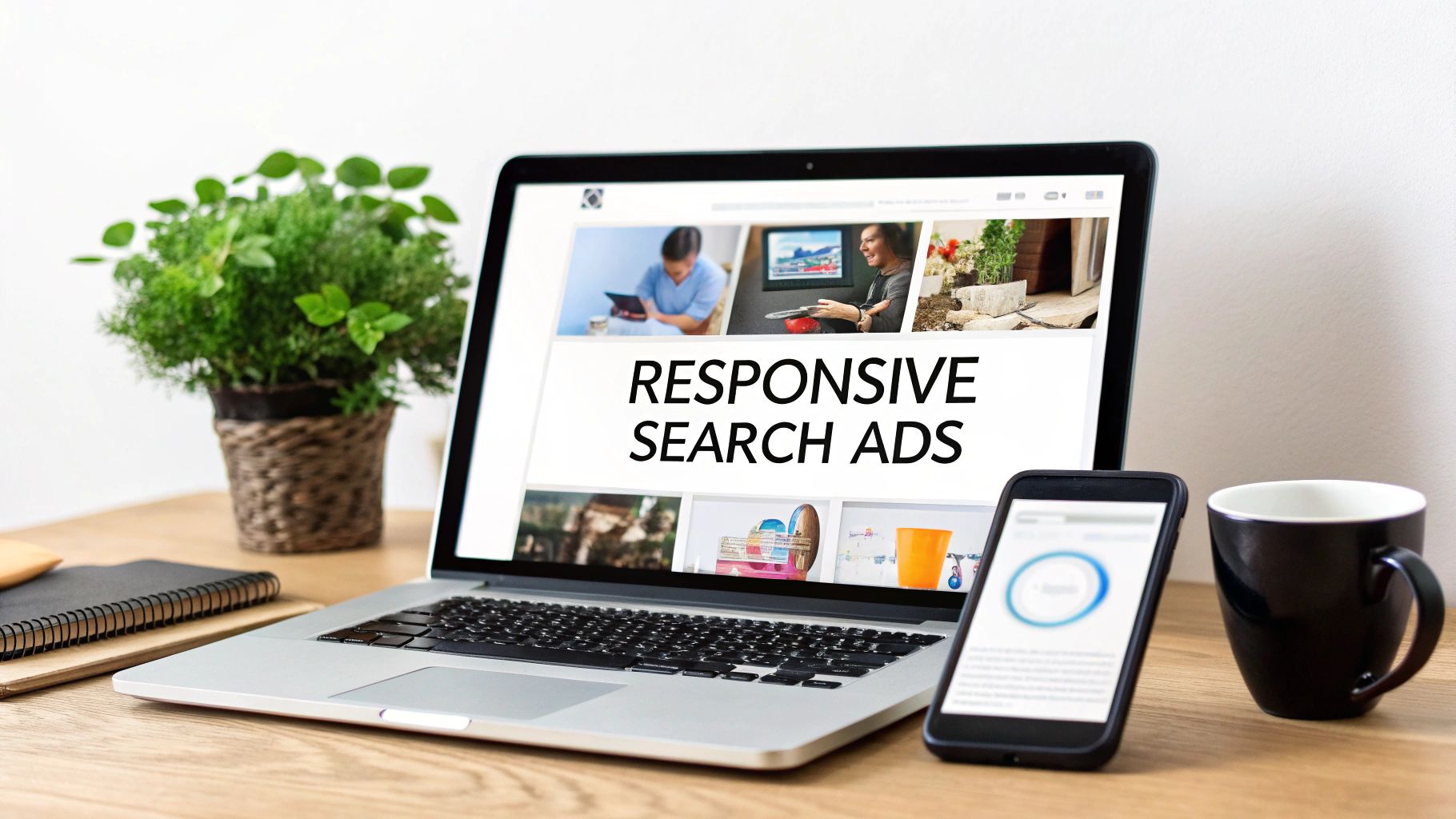
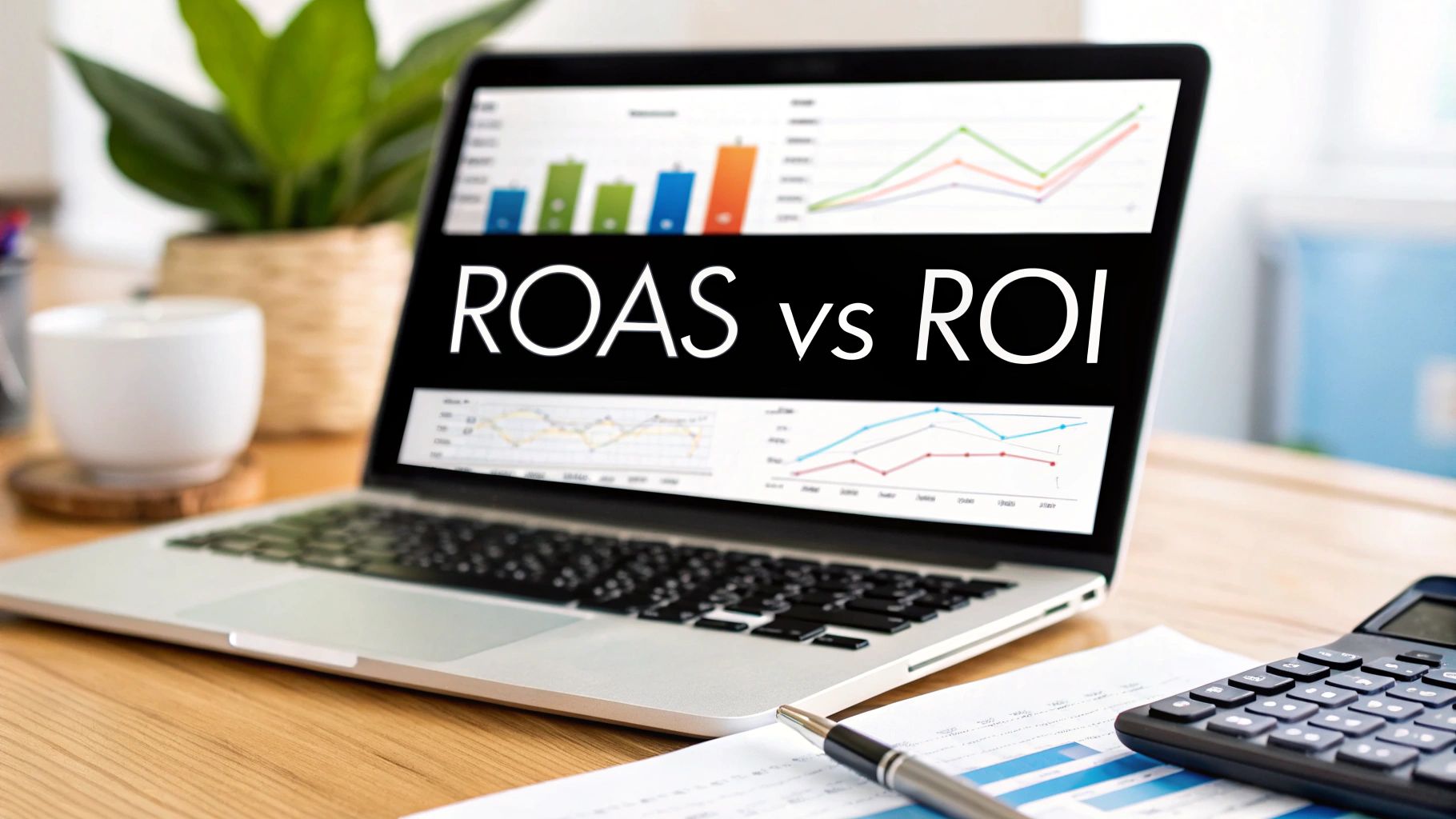
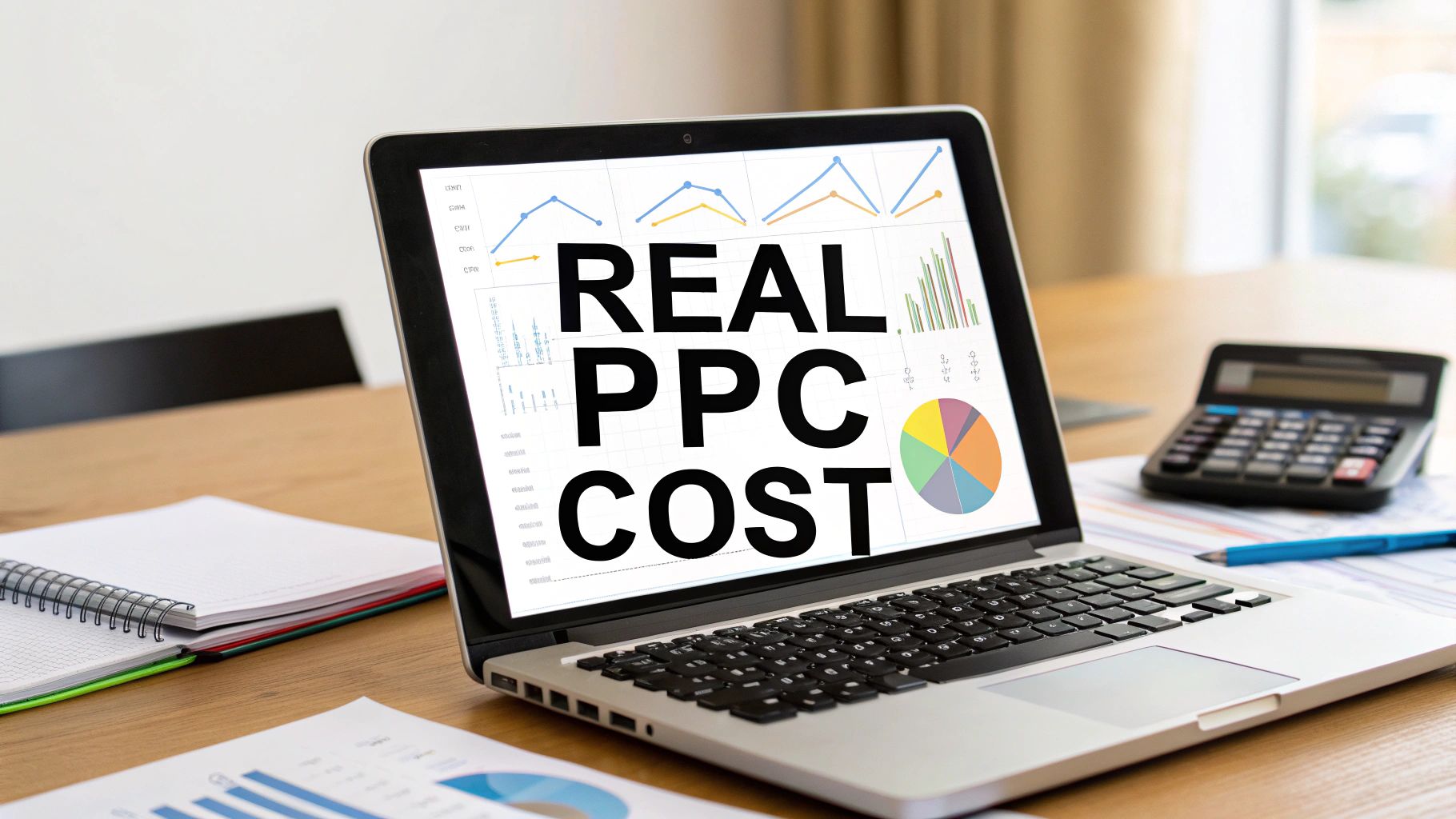
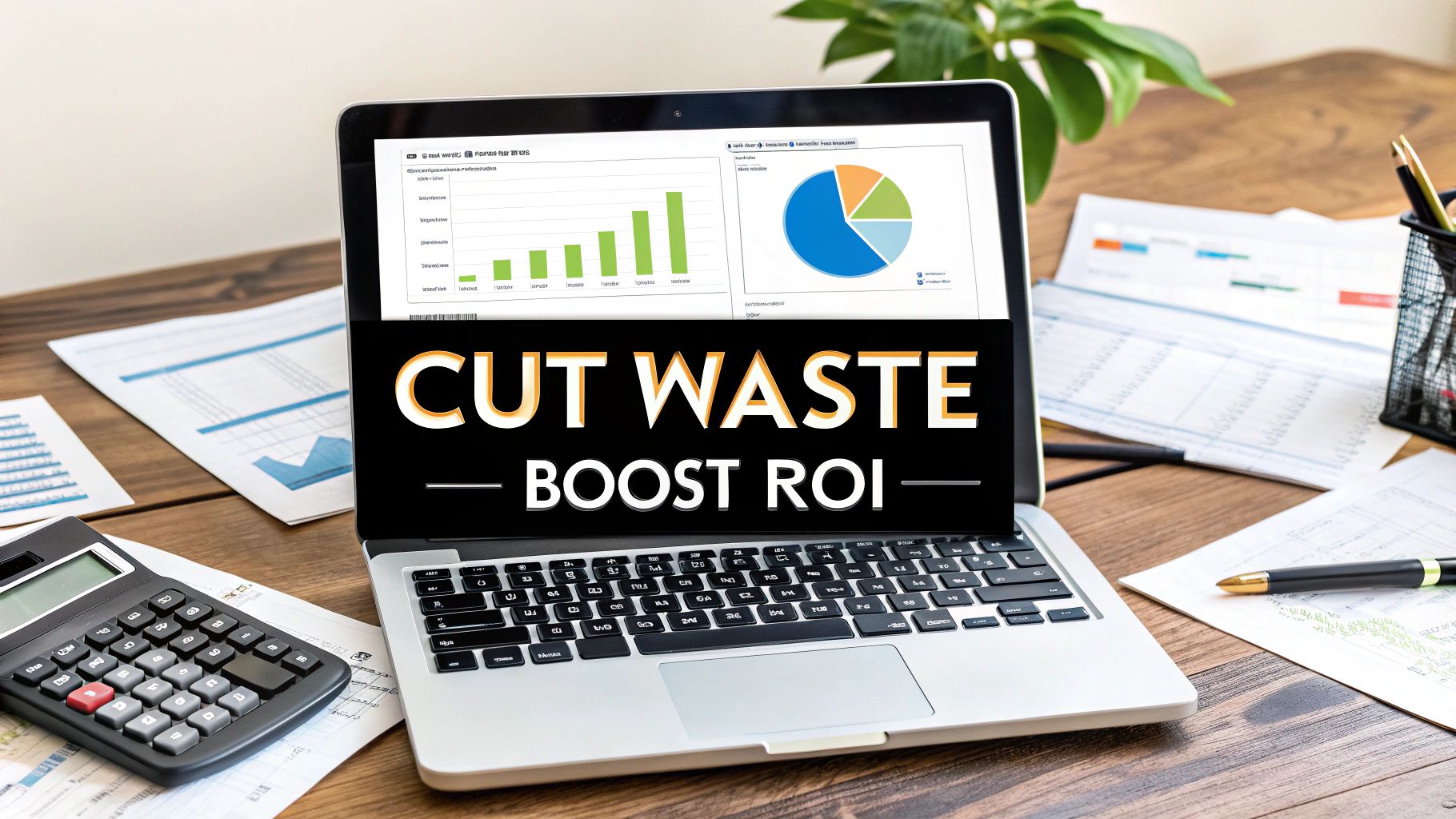
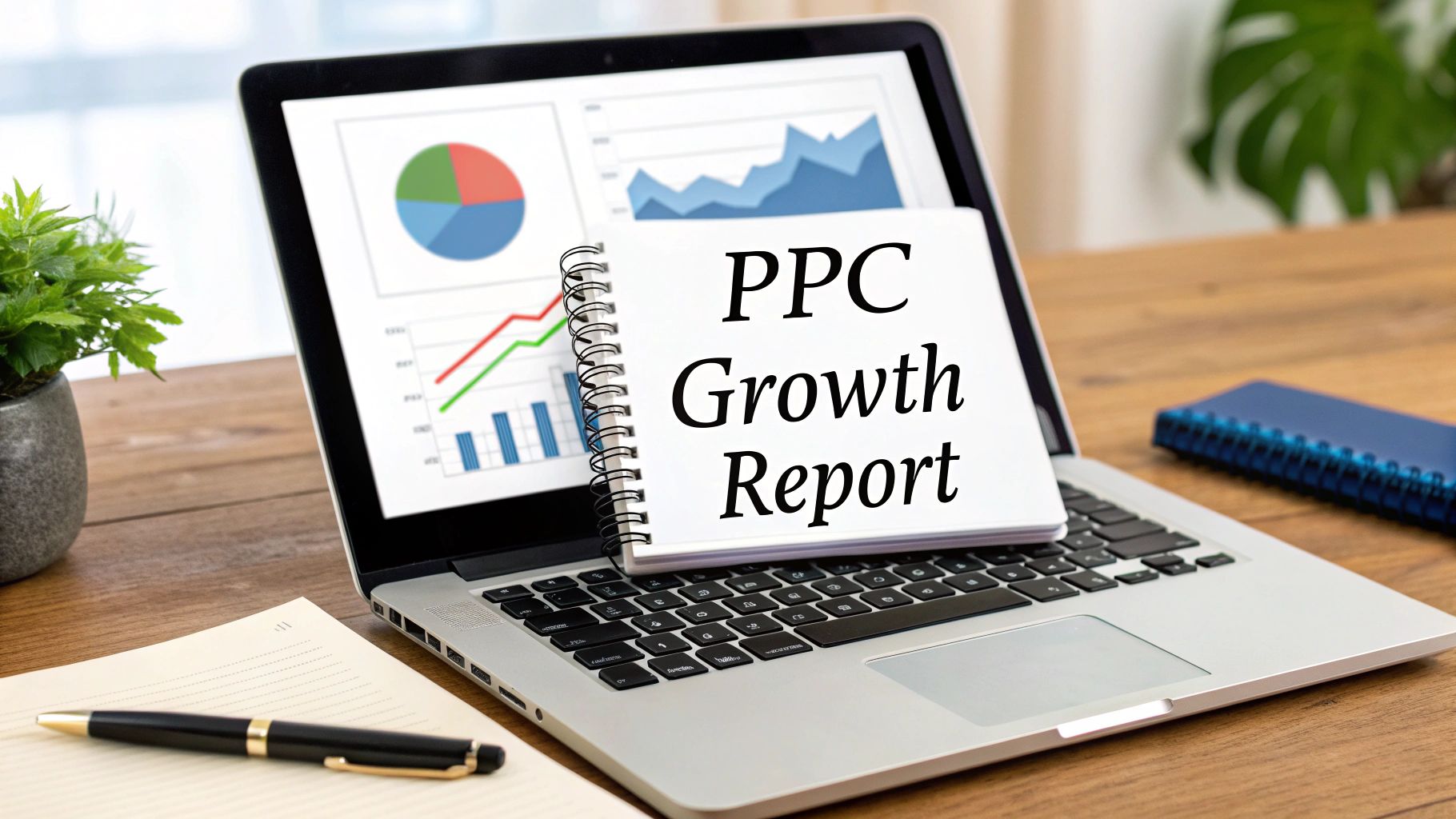
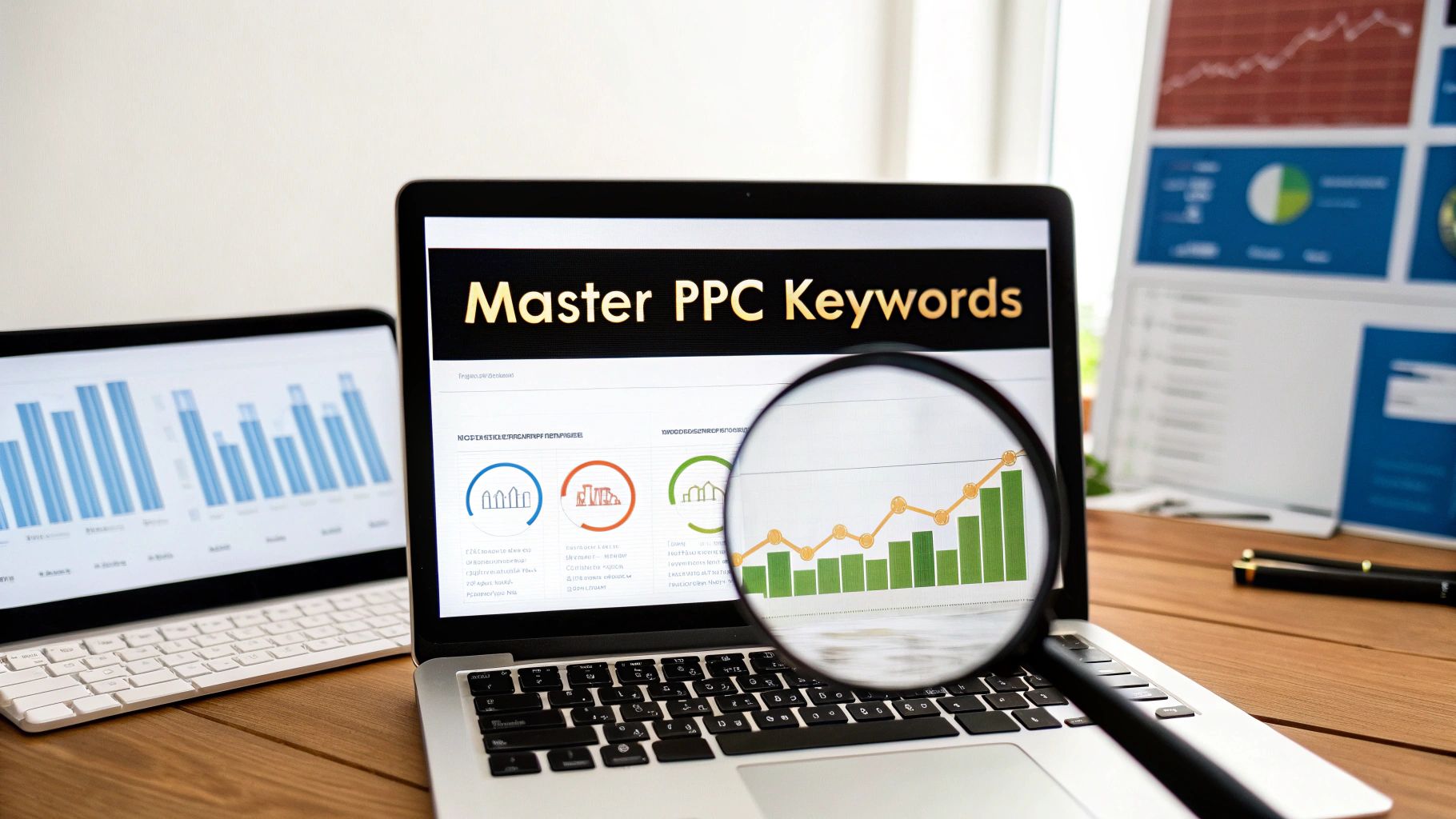
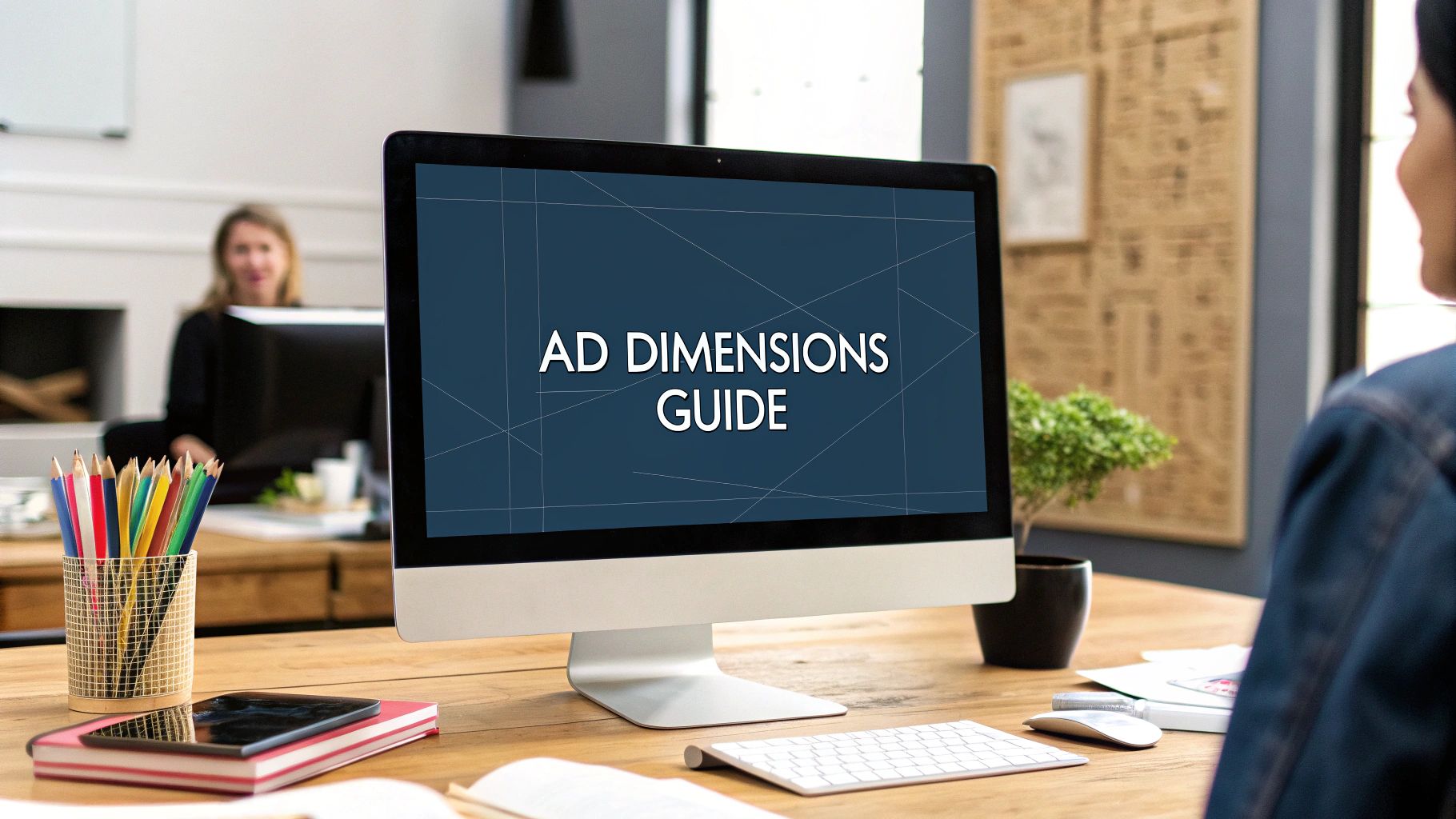
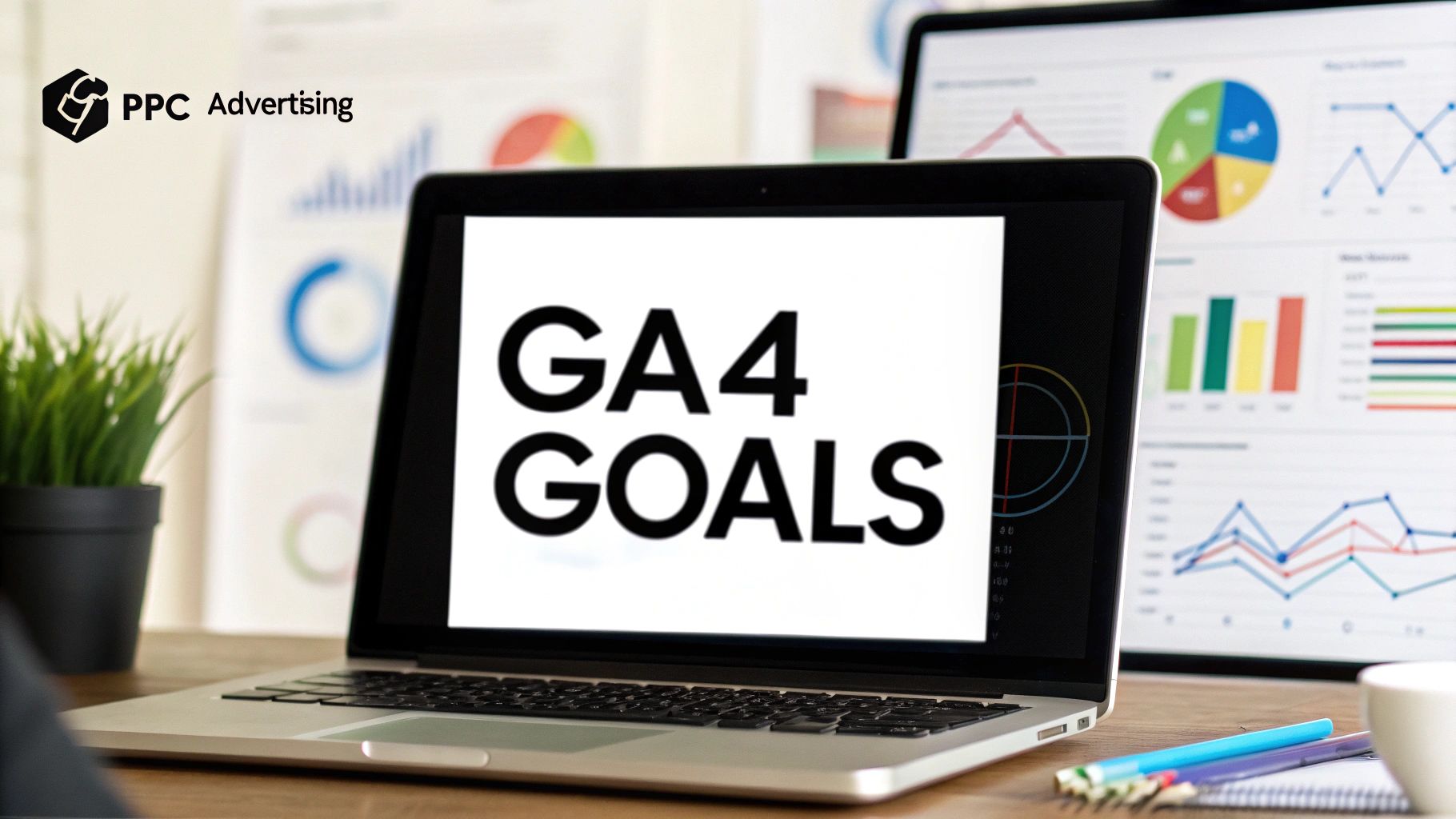
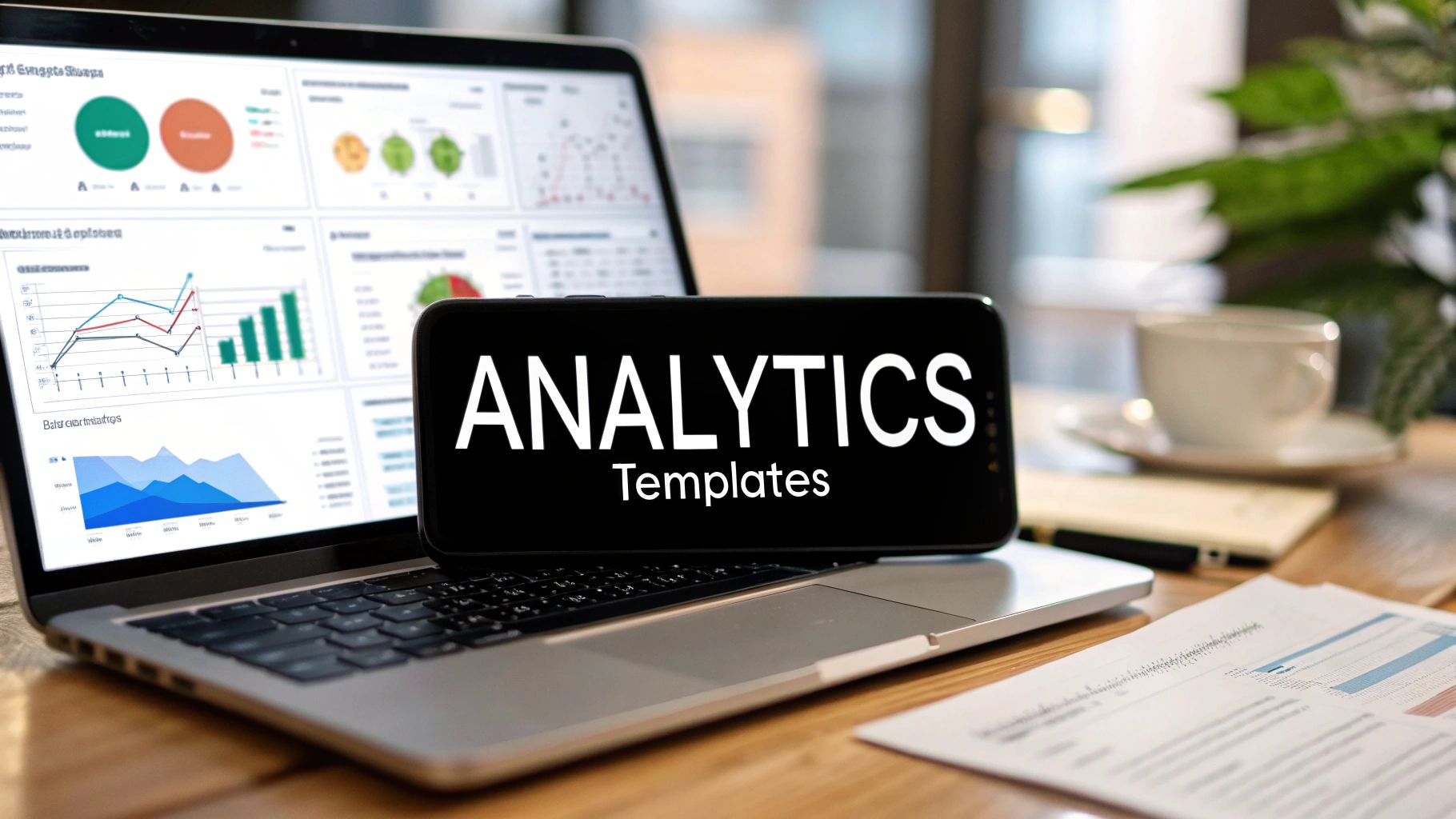
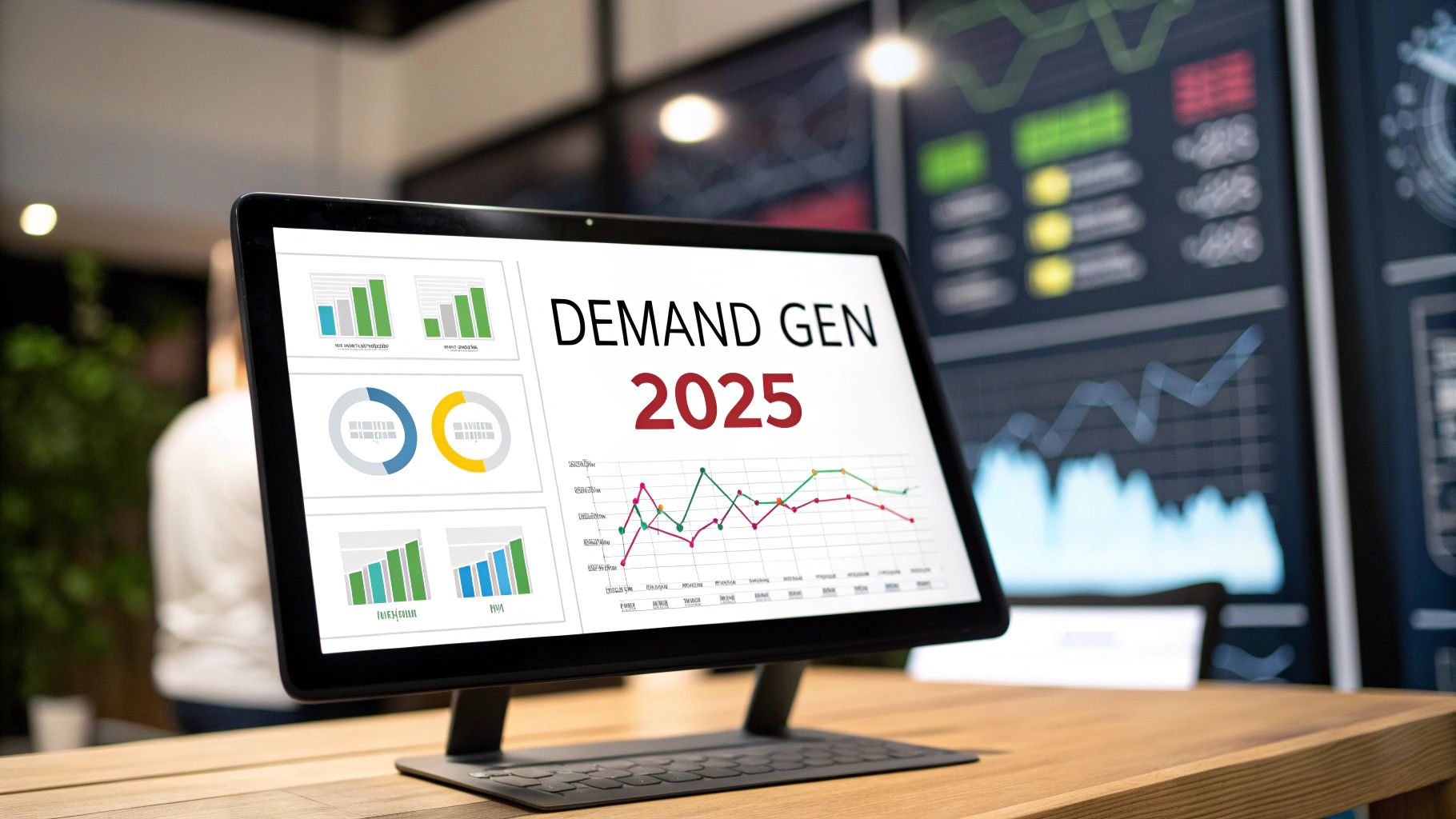
Comments